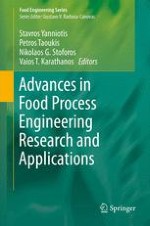2013 | OriginalPaper | Buchkapitel
31. Does Biofuel Production Threaten Food Security?
verfasst von : Walter E. L. Spiess
Erschienen in: Advances in Food Process Engineering Research and Applications
Verlag: Springer US
Aktivieren Sie unsere intelligente Suche, um passende Fachinhalte oder Patente zu finden.
Wählen Sie Textabschnitte aus um mit Künstlicher Intelligenz passenden Patente zu finden. powered by
Markieren Sie Textabschnitte, um KI-gestützt weitere passende Inhalte zu finden. powered by
